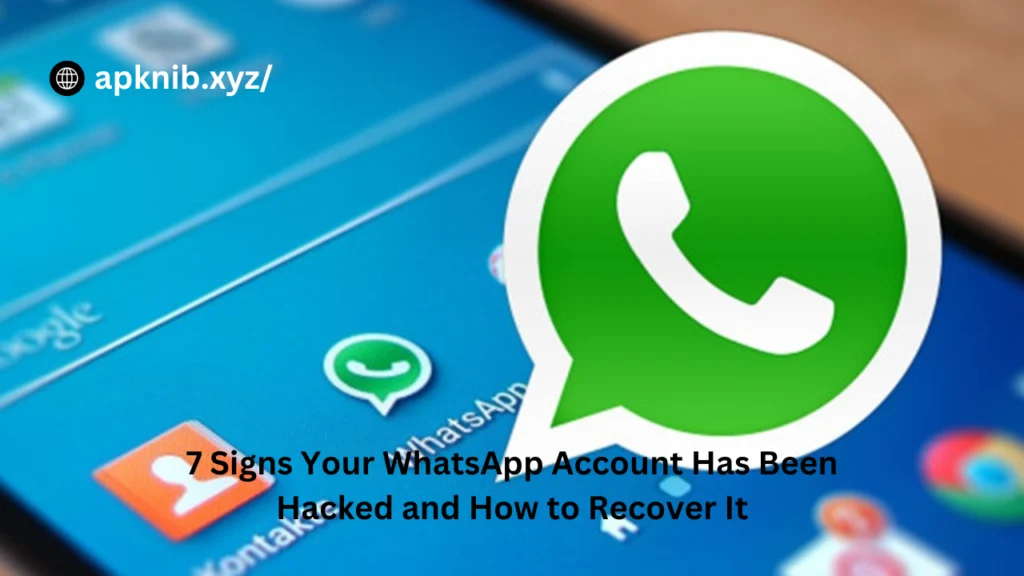7 Signs Your WhatsApp Account Has Been Hacked and How to Recover It
7 Signs Your WhatsApp Account has become a central part of our lives, helping us stay connected with friends, family, and colleagues. Unfortunately, its popularity also makes it a prime target for hackers. Many people realize their account has been hacked only when they are locked out, but this isn’t the only sign of a compromised account. In this article, we’ll discuss the signs that your WhatsApp account may have been hacked and provide actionable steps to recover and secure it.
Understanding WhatsApp Hacking
7 Signs Your WhatsApp Account Hacking involves gaining unauthorized access to your account, stealing information, or manipulating your data. It’s possible for someone to hack your WhatsApp account without locking you out. So, how can you tell if your account is being used by someone else? Let’s explore the warning signs.
7 Signs Your WhatsApp Account Has Been Hacked
1. Unknown Devices Linked to Your Account
Hackers often link their devices to your account to access messages. To check if this has happened:
- Go to Settings in WhatsApp.
- Select Linked Devices.
- Review the devices listed. If you see any that you don’t recognize, log them out immediately by tapping on the device and selecting Log Out.
2. Unfamiliar Profile Changes
If your profile picture, name, or phone number has been changed without your knowledge, it’s a strong indication that someone else has access to your account. This could also mean someone physically accessed your phone.
3. Messages You Didn’t Send
Noticed messages in your chat history that you don’t remember sending? Or perhaps your contacts mention receiving strange messages from you? These are signs that your account may be hacked. Additionally, if you’re being added to groups without your permission, it’s worth investigating further.
4. New Contacts in Your List
Sometimes hackers delete conversations to hide their activity, but the contacts they communicated with may remain. Check your contact list for unknown numbers that you didn’t add yourself.
5. Unrequested Verification Codes
Receiving verification codes you didn’t request is a red flag. This often indicates someone is trying to register your phone number on another device. Never share these codes with anyone, and take immediate steps to secure your account.
6. Reports from Friends About Messages
If friends or family report receiving strange messages from your account that you didn’t send, it’s likely your account has been compromised. This is a common tactic used by hackers to spread malware or scam others.
7. Being Locked Out of Your Account
The most obvious sign of hacking is being unable to access your account. This typically happens when the hacker tries to take full control by changing your login credentials.
Steps to Recover and Secure Your WhatsApp Account
1. Reinstall WhatsApp
If you’re locked out, uninstall and reinstall WhatsApp. Enter your phone number during setup, and WhatsApp will send you a verification code. As long as you have access to your phone number, you can regain control.
2. Log Out from All Devices
Even if you’re not locked out, ensure you log out of all unknown devices:
- Open Settings.
- Go to Linked Devices.
- Log out of all unfamiliar devices.
3. Enable Two-Step Verification
Add an extra layer of security by enabling two-step verification:
- Go to Settings.
- Select Account.
- Tap on Two-Step Verification and set up a six-digit PIN.
4. Update Your App Regularly
Always use the latest version of WhatsApp to benefit from updated security features.
5. Avoid Clicking on Suspicious Links
Hackers often use phishing links to gain access. Be cautious of messages containing suspicious links, even if they come from trusted contacts.
6. Back Up Your Chats
7 Signs Your WhatsApp Account Regularly back up your chats and media to ensure you don’t lose important data:
- Open Settings.
- Go to Chats.
- Select Chat Backup and schedule daily or weekly backups.
7. Strengthen Phone Security
7 Signs Your WhatsApp Account Secure your phone with a strong password or biometric authentication. Avoid sharing your phone with others, and always lock it when not in use.

How to Protect Your Account from Future Attacks
- Be Wary of Unknown Messages: Avoid engaging with unknown contacts or suspicious messages.
- Educate Your Contacts: Inform friends and family about common WhatsApp scams so they don’t fall victim.
- Secure Your Email: Hackers often target linked email accounts. Use a strong password and enable two-factor authentication for your email.
- Monitor Your Account Regularly: Periodically check linked devices and account settings for unauthorized changes.
- Report Suspicious Activity: If you notice unusual activity, report it to WhatsApp immediately.
Conclusion
Hacking can happen to anyone, but recognizing the signs early can prevent significant damage. By following the steps outlined above, you can secure your account and prevent future attacks. 7 Signs Your WhatsApp Account Always stay vigilant, keep your software updated, and educate yourself about online threats. A secure WhatsApp account ensures that your personal conversations and data remain private and protected.
FAQs
1. How can I tell if my WhatsApp is hacked? 7 Signs Your WhatsApp Account Look for unknown devices in the Linked Devices section, unauthorized profile changes, or messages you didn’t send.
2. Can I recover my WhatsApp account if I’m locked out? Yes, reinstall WhatsApp and verify your phone number using the code sent to your device.
3. What is two-step verification on WhatsApp? It’s an added security feature that requires a six-digit PIN to access your account.
4. What should I do if I receive a verification code I didn’t request? Do not share the code with anyone. 7 Signs Your WhatsApp Account Check your account for suspicious activity and secure it immediately.
5. How can I prevent my WhatsApp account from being hacked? Enable two-step verification, avoid 7 Signs Your WhatsApp Account clicking on suspicious links, and regularly monitor your account settings.






